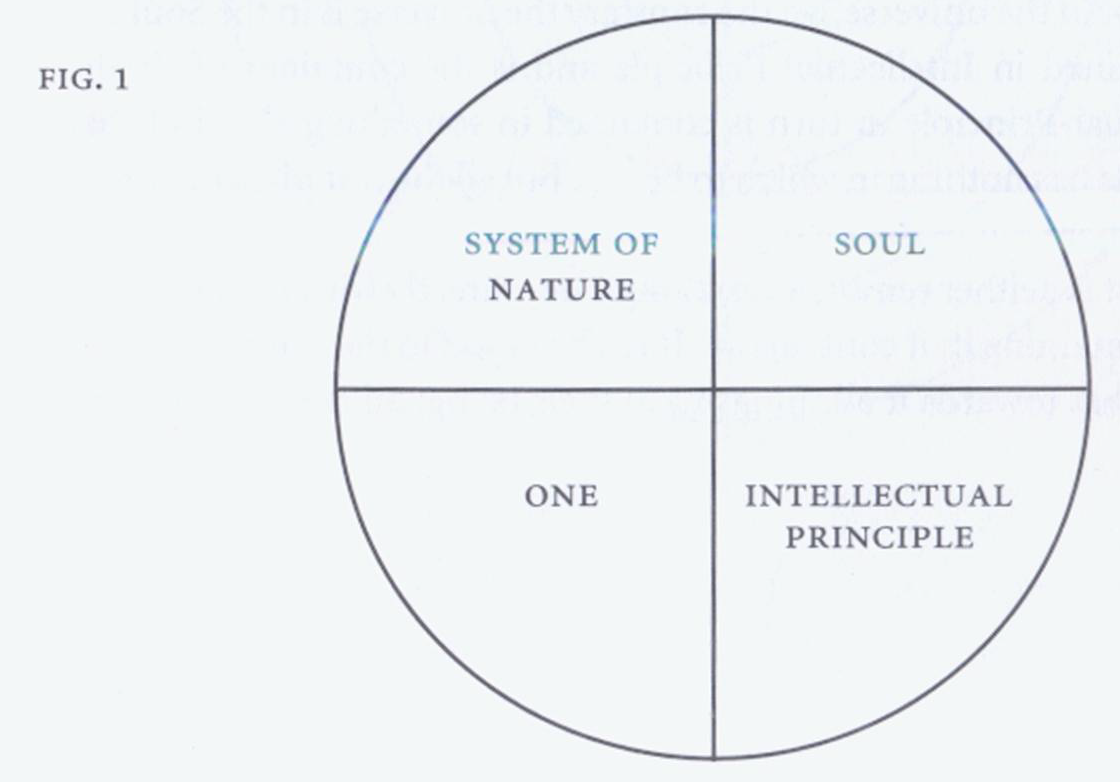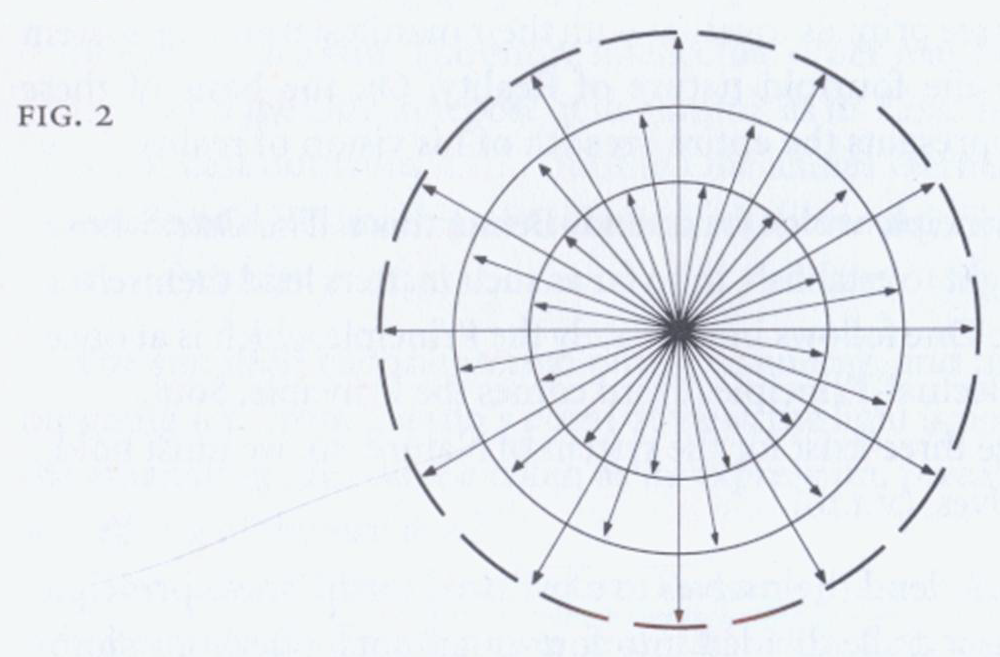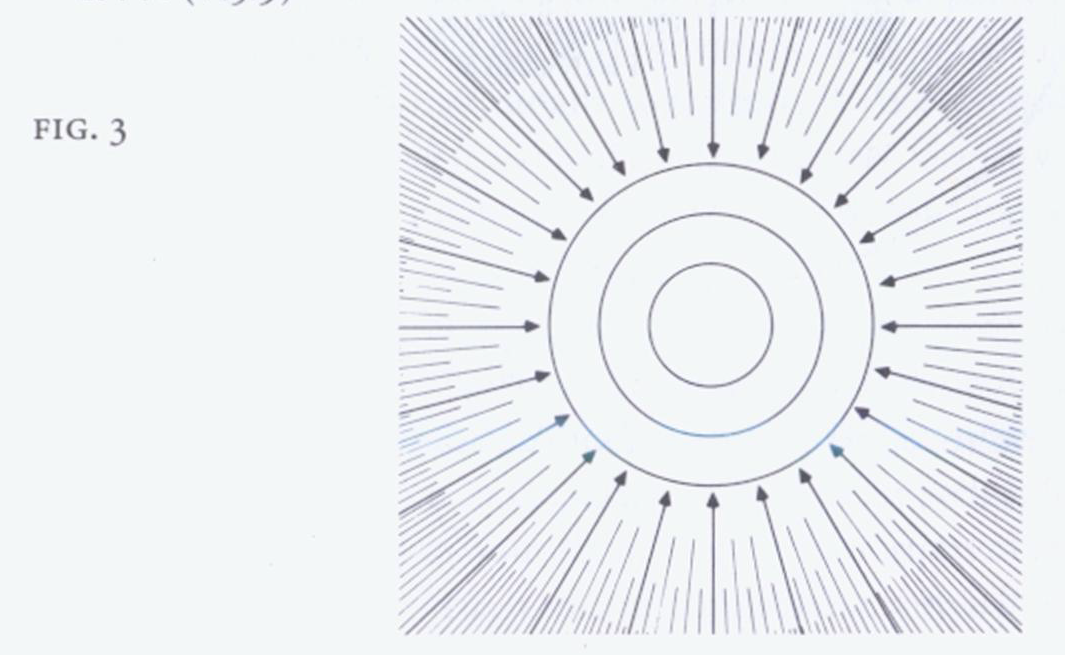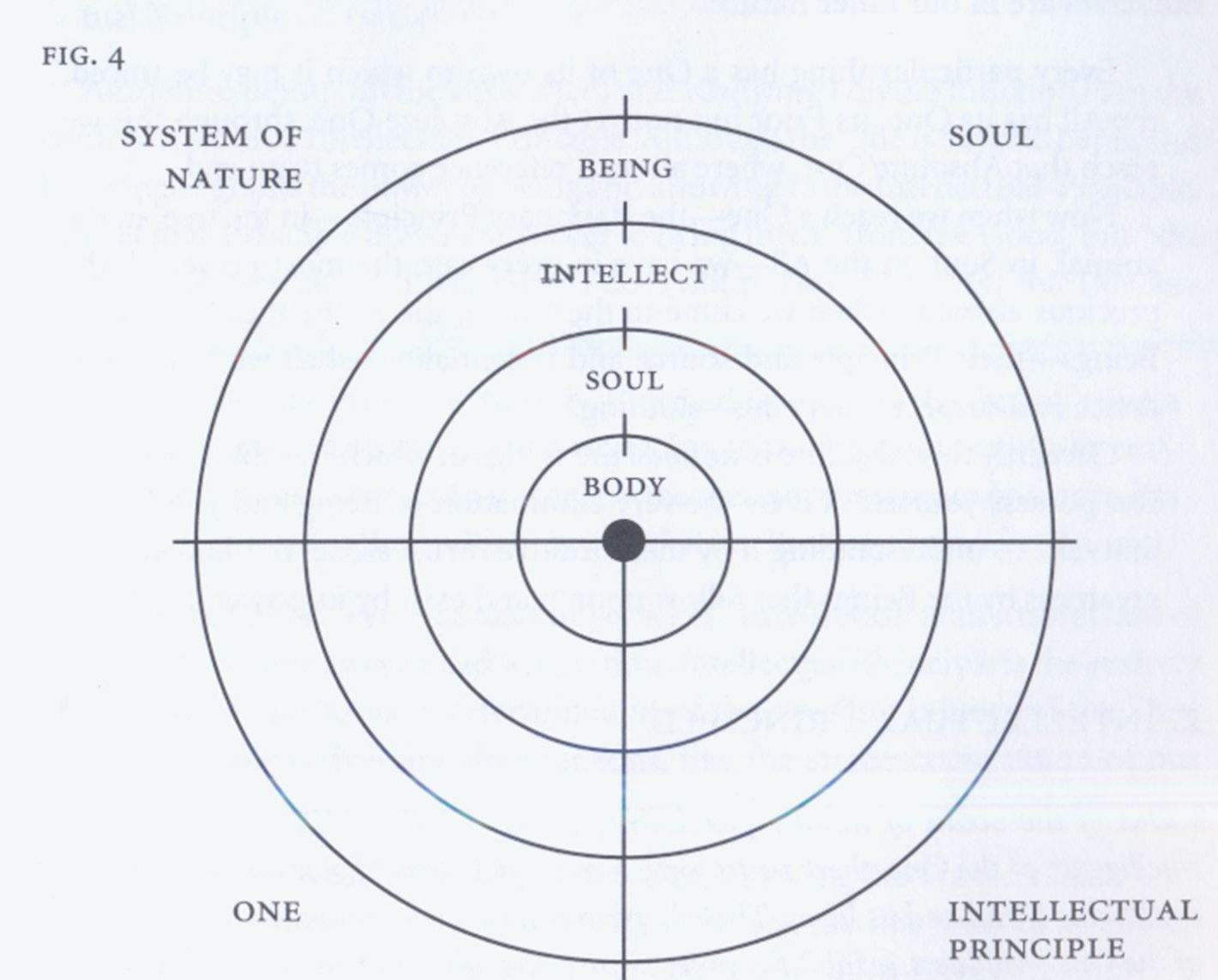Página inicial > Antiguidade > Neoplatonismo (245-529 dC) > Plotino (séc. III) > Damiani (Enneads:712-720) – The One
 Damiani (Enneads:712-720) – The One
Damiani (Enneads:712-720) – The One
quarta-feira 13 de setembro de 2023, por
Plotinus presents a philosophy of Unity: unity as unfathomable and transcendent, and unity as omnipresent and immanent.
First in the order of importance are statements about the existence of God, the One-Only; for following upon this certitude that is the very core of all that he will say, Plotinus transmits for our benefit a wisdom-knowledge or prima philosophia conascent with the foundations of our world and our being.
“In what sense, then,” Plotinus asks in VI.9.6, “do we assert this Unity and how is it to be adjusted to our mental processes?” This question initiates our inquiry into the nature of the One.
The One is absolute positivity: pure universal existence inbound with the totality of possibilities and infinity of power. Perhaps it might be more meaningful and provocative to say that it is intelligence—or, better still, pure [713] intelligence. Sufficient and complete in itself, the only Perfection is without peer and is beyond any limitation, dependence, need, or multiplicity of any kind:
Standing before all things . . . transcending Being. . . . Untouched by multiplicity, it will be wholly self-sufficing, an absolute First... (V.4.1)
This affirmation of its transcendence does not imply that the One is a blank homogeneity or zero; rather, that it is unlimited fullness. To aim the understanding “beyond being” does not mean that it must at some point fall into an abyss of nothingness. On the contrary, remove whatever aseity [ unique essence] characterizes any principle or idea, and the infinity of the transcendent is then conceptually available.
Although the One is beyond knowledge in the ordinary sense, Plotinus indicates that it is a Supra-Knowledge in an extraordinary sense. It is “not, so to speak, imperceptive, but everything of it is in it and with it; it is entirely self-discerning.” (V.4.2, Deck, page 33) It is not by excluding qualities that the One is beyond all qualities, but rather because no distinct character can remain intact in its infinite atmosphere.
In VI.8.16 [Deck translation], Plotinus speaks of an eternal “wakefulness” (or a consciousness).... The statement that the One “will be in the way it is awake” (Deck, page 32) is a particularly emphatic assertion of the identity of wakefulness (consciousness) with existence____But first we must fully encounter the uniqueness of this conception of the Absolute: our minds should be brought to a halt by what we are being asked to consider. Pure unconditioned being in all its universality is conceived here as [in] identity with intrinsically appropriate super-intelligence: eternal stasis reigns.
Obviously, no symbol is adequate to this Absolute. But... Plotinus assures us that “there is a certain rough fitness in designating it as unity.” (VI.9.5) Plotinus clearly states that the One’s simplicity is not that of a spatial point or a quantitative unit to be enumerated with others:
... nor is its impartibility that of extreme minuteness; on the contrary it is great beyond anything, great not in extension but in power... infinite... in fathomless depths of power, (VI.9.6)
In a preliminary fashion, he dismisses the elementary associations that the word “One” may have ... this very positive description of the Unity’s power as beyond any determination or limitation means that unlimited power should be understood as an indivisible aspect that is identical with Unity ... In this sense, it is beyond Divine Mind, or Being. Such a total affirmation ... points beyond to an ultimateless Ultimate “utterly a self-existent, with no concomitant whatever. This self-sufficing is the essence of its unity ... supremely adequate, autonomous, all-transcending, most utterly without need.” (VI.9.6) It is the Alone.
This One is not, therefore, an abstraction from other principles. On the contrary, all other principles are literally divine outflowings from the superabundance of its Perfection. The later principles are all dependent on It; but the One depends on none. For any principle or being to be at all, it must first be a unity: the first principle of all principles is Unity itself...
We are presented with a Supreme Intelligence that does not loosen, dwindle, or divide itself, nor is it modified or spread out among the lower orders of reality. This is the initial premise. Appreciating this intact perfection is a necessary and absolute prerequisite to arrive at a proper understanding of emanation.
A second question arises:
... from such a unity as we have declared The One to be, how does anything at all come into substantial existence ... ? (V.1.6)
Plotinus’ initial answer is so beautiful and simple that it merits a pause to appreciate its precise solution to the problem:
All existences, as long as they retain their character, produce—about themselves, from their essence, in virtue of the power which must be in them—some necessary, outward-facing hypostasis continuously attached to them and representing in image the engendering archetypes. ... Again, all that is fully achieved engenders: therefore the eternally achieved engenders eternally an eternal being. (V.1.6)
This approach to the One accounts for the arisal of Beings without lessening the One.
For Plotinus the One-and-its-Power stands first and foremost above all and simultaneously sustains and includes lesser levels of reality which are neither self-sufficient nor illusory. Through an understanding of this principle of Power, we can make available to our minds what we refer to as the double truth—that is, the nondual reality does not exclude the dualistic but includes and supports it.
If The First is perfect, utterly perfect above all, and is the beginning of all power, it must be the most powerful of all that is, and all other powers must act in some partial imitation of it.... the First Good, the Power towards all, how could it grudge or be powerless to give of itself, and how at that would it still be the Source? (V.4.1)
In considering this Power which we conceive as identical with the One’s own nature, a twofold character of the One is observable. There is utter stillness or passive perfection of the Transcendent and there is its infinite Act: “his being is constituted by this self-originating self-tendance—at once Act and repose.” (VI.8.16)
These two ultimate complementaries—active and passive perfection—although unavoidably polarized by our own thought, must nonetheless be recognized as coinciding within the One’s absolute completion. In order to understand such descriptions of the ultimate, it is essential for our minds to become acclimated to a logic of paradox. For here we are indeed aspiring to knowledge beyond (para) the proper realm of what Plato calls doxa, that is, the intellectual processes corresponding with sense-experience.
Plotinus characterizes the infinite and indeterminate Power of the One as both identical with the pure undifferenced [super-] knowledge of the One and radiating from it.
There is in everything the Act of the Essence and the Act going out from the Essence: the first Act is the thing itself in its realized identity, the second Act is an inevitably following outgo from the first, an emanation distinct from the thing itself....So it is in the divine also: or rather we have there the earlier form of the double act: the divine remains in its own unchanging being, but from its perfection and from the Act included in its nature there emanates the secondary or issuing Act which—as the output of a mighty power, the mightiest there is—attains to Real Being as second to that which stands above all Being, (V.4.2)
Power, as spoken of here, has this twofold meaning. When Plotinus refers to it as a completing power which produces no new thing within the One, it coincides with and is indistinguishable from the One. Secondly, that same power flows forth or emanates from the One [taking shape as the Intellectual-Principle] .
Excluded from the Godhead is any personal volition; the process is completely impersonal. Within the One itself there can be no change or process, no operation, arrangement, or combination of any sort—not even the universal relativity of Forms found in the Intellectual-Principle. Bearing all this in mind, we must hold firmly that the One is in no way becoming anything. ... Throughout all the production that inevitably ensues, the One remains unmoved; all possible production is already transcendentally actual and accomplished within its own infinite power.
From the sheer intensity of this perfection, there emanates, as a distinct and lower existent, the Intellectual-Principle, the aggregate of eternally-existing Ideas and Beings----This emanating power contains and reflectively includes [716] the transcendent models or paradigms and the ideas ... an externalization or efflux of the complex interiority of the indivisible aspects of the Supreme Perfection.
The only reasonable explanation of act flowing from it lies in the analogy of light from a sun. The entire intellectual order may be figured as a kind of light with the One in repose at its summit as its King: but this manifestation is not cast out from it . . . but the One shines eternally, resting upon the Intellectual Realm; this, not identical with its source, is yet not severed from it... (V.3.12)
The sun itself has an internal power or energy, and the radiating light is its outgoing act. From the sun’s point of view, the light is not other than itself, but the emanating rays can be taken as its expression, revealing in their spectrum something of the sun itself.
The Divine Mind [Intellectual-Principle] is a reflex ... an image of an infinite original of such power and perfection that the very copy, so-called, stands a reality. The Intellectual-Principle and its emanation, Soul, are not illusory in any sense; they are also eternal_we have to consider them as distinct realities of different degrees.
There is, accordingly, from the first principle to ultimate an outgoing in which unfailingly each principle retains its own seat while its offshoot takes another rank, a lower, though on the other hand every being is in identity with its prior as long as it holds that contact. (V.2.2)
Even if we view the three primal Hypostases—the One, Intellectual-Principle and Soul—as forming an integral whole (which is often referred to as the Absolute when considered from the side of manifestation), the distinctions cannot be dissolved in such a way that the Nous and Soul, so carefully defined, become illusory principles. In our understanding of the metaphysical Infinite, we retain the view of the One as the pure and only perfect reality, as well as the view of real and distinct emanations from it. We do not violate the One’s sovereignty by granting to each of the other levels of reality their proper status; they do not become null and void in the face of the One which they eternally contemplate.
These principles or wisdom emanations [the pure hypostases in themselves] ... constitute a spiritual hierarchy that is broader and more inclusive than can ever be adequately suggested by any verbal schema. [They] exist in a distinctionless mode ... a self-sufficing and eternally august nature, the grandeur of authenticity. In truth they are an inscrutable abyss—a blinding darkness to our intellect, a radiance and joy that can suffocate the unprepared [717] but illuminate and enlighten permanently the proficient, the adept. Their own proper subsistence constitutes a realm that is beyond the reach of any imaginative activity, heights that are literally unimaginable. Nonetheless, they are precisely what constitute the content of philosophic wisdom.
For Plotinus, the three primals together with their manifestation, the system of Nature, constitute the fourfold nature of Reality. On the basis of these distinctions, Plotinus presents the entire breadth of his vision of reality.
There exists a Principle which transcends Being; this is The One, whose nature we have sought to establish, in so far as such matters lend themselves to proof. Upon The One follows immediately the Principle which is at once Being and the Intellectual-Principle. Third comes the Principle, Soul.Now just as these three exist for the system of Nature, so, we must hold, they exist for ourselves, (V.1.10)
The remarks in V.1.10 lend themselves to a pictorial form. These principles can be diagrammed as a circle divided into four quadrants, offering a simple static representation of his meaning. The first quadrant represents the One; the second, Intellectual-Principle (Nous); the third symbolizes Soul; and the fourth, the entire System of Nature or Universal Manifestation in its totality— the Body of God.
We see this quadrature as representing four “substantial” levels of reality, each of which entails a distinct level of Consciousness or Mind. This same reality may be portrayed in terms of its “functional” modes. Plotinus suggests two ways to imagine the dynamic relation of the One to its emanations.
There is, we may put it, something that is centre; about it, a circle of light shed from it; round centre and first circle alike, another circle, light from light; outside that again, not another circle of light but one which, lacking light of its own, must borrow, (IV.3.17)
Reversing the order of the circles, the entire background intelligence represents the One, and the other principles are seen as successive circles nested within it—all encompassed by the uncircumscribed Good.
But Soul is not in the universe, on the contrary the universe is in the Soul... Soul is contained in Intellectual-Principle and is the container of body. The Intellectual-Principle in turn is contained in something else; but that prior principle has nothing in which to be. ... But all the rest must be somewhere; and where but in the First?... the First is neither remote from things, nor directly within them; there is nothing containing it; it contains all. It is The Good to the universe if only in this way, that towards it all things have their being, all dependent upon it... (V.5.9)
By superimposing the two perspectives of quadrants and circles, we get a diagram which visually suggests the paradoxical nature of Reality—intelligence and its activity, or substance (quadrants) and function (rings) as simultaneous. The image of the contracting circles is used here, though the radiating sequence would be equally compelling. We show four rings to indicate the functioning of reality: the two outermost rings represent Being and Intellection (cf. V.1.10 above), the third represents soul, and the innermost represents body.
As passing through all four quadrants, the rings represent a dynamic or active view connecting the substance represented by the quadrants. This interweaving emphasizes that the primals are simultaneous as well as hierarchical.
This symbol also helps us to see the simultaneous views of the One as transcendent and immanent. We represent the One as transcendent by the first quadrant, while the other quadrants symbolize those principles that emanate from the One. The presence of the rings in the first quadrant indicates that the One prefigures the other levels within itself in a transcendent and mysterious mode. “What is present in Intellectual-Principle,” Plotinus says in VI.8.18, “is present, though in a far transcendent mode, in the One.”
We represent the One as immanent by the presence of the entire circular disc in each of the successive rings. It is, as Plotinus says, “wonderful” that “while it [the One] is nowhere, nowhere is it not.” (V.5.8)
This image of the fourfold nature of Reality provides us with a paradigm: for any authentic existent will participate in unity, intellection, soul, and body (manifestation). This teaching on the nature of the One applies not only to the transcendent One, but to any authentic being which is a one—such as we ourselves are in our inner nature.
Every particular thing has a One of its own to which it may be traced; the All has its One, its Prior but not yet the Absolute One; through this we reach that Absolute One, where all such reference comes to an end.Now when we reach a One—the stationary Principle—in the tree, in the animal, in Soul, in the All—we have in every case the most powerful, the precious element: when we come to the One in the Authentically Existent Beings—their Principle and source and potentiality—shall we lose confidence and suspect it of being—nothing?Certainly this Absolute is none of the things of which it is the source.... But possess yourself of it by the very elimination of Being and you hold a marvel. ... understanding it by that intuitive thrust alone, but knowing its greatness by the Beings that follow upon it and exist by its power. (III.8.10)
Ver online : Anthony Damiani
 PhiloSophia
PhiloSophia


